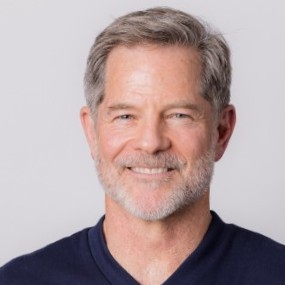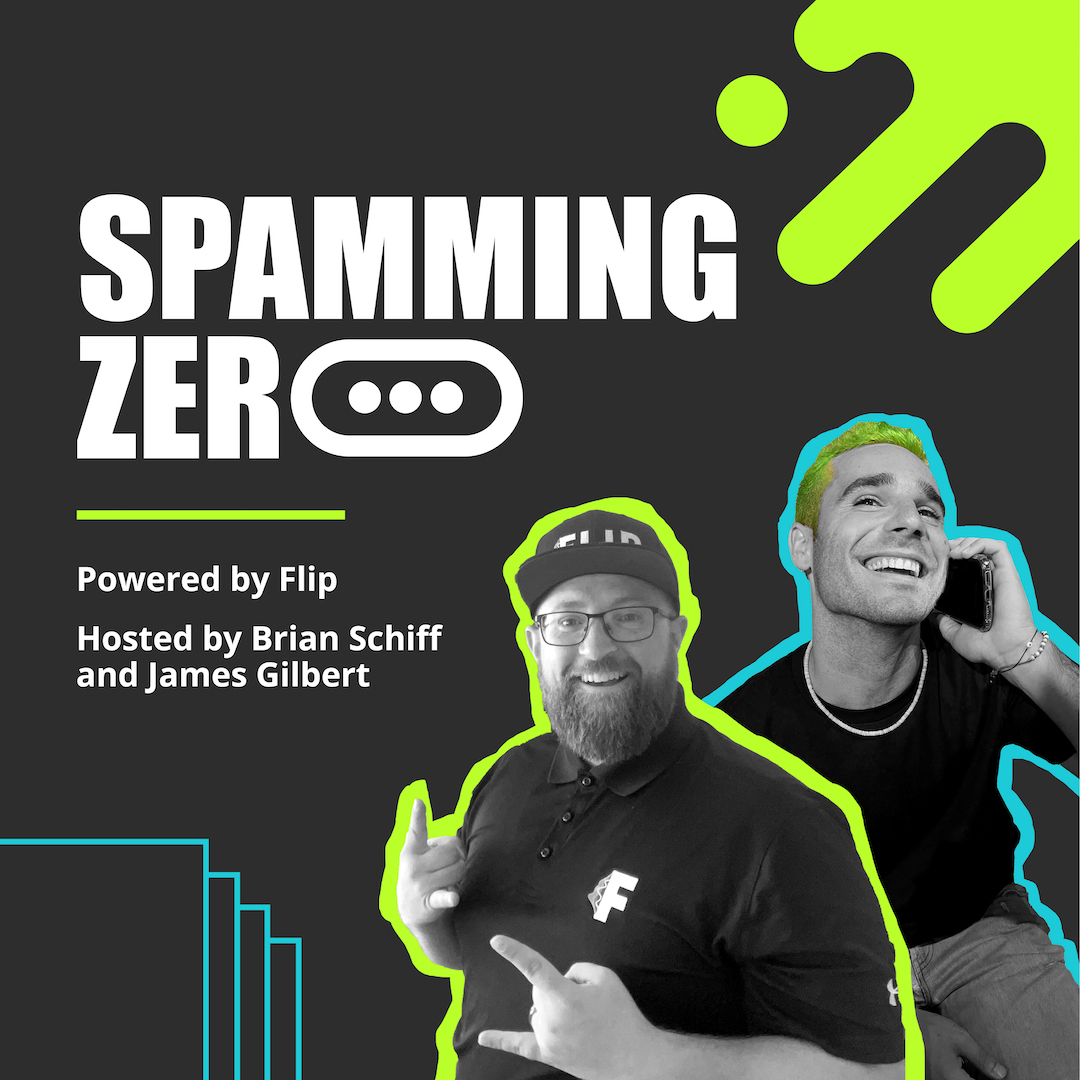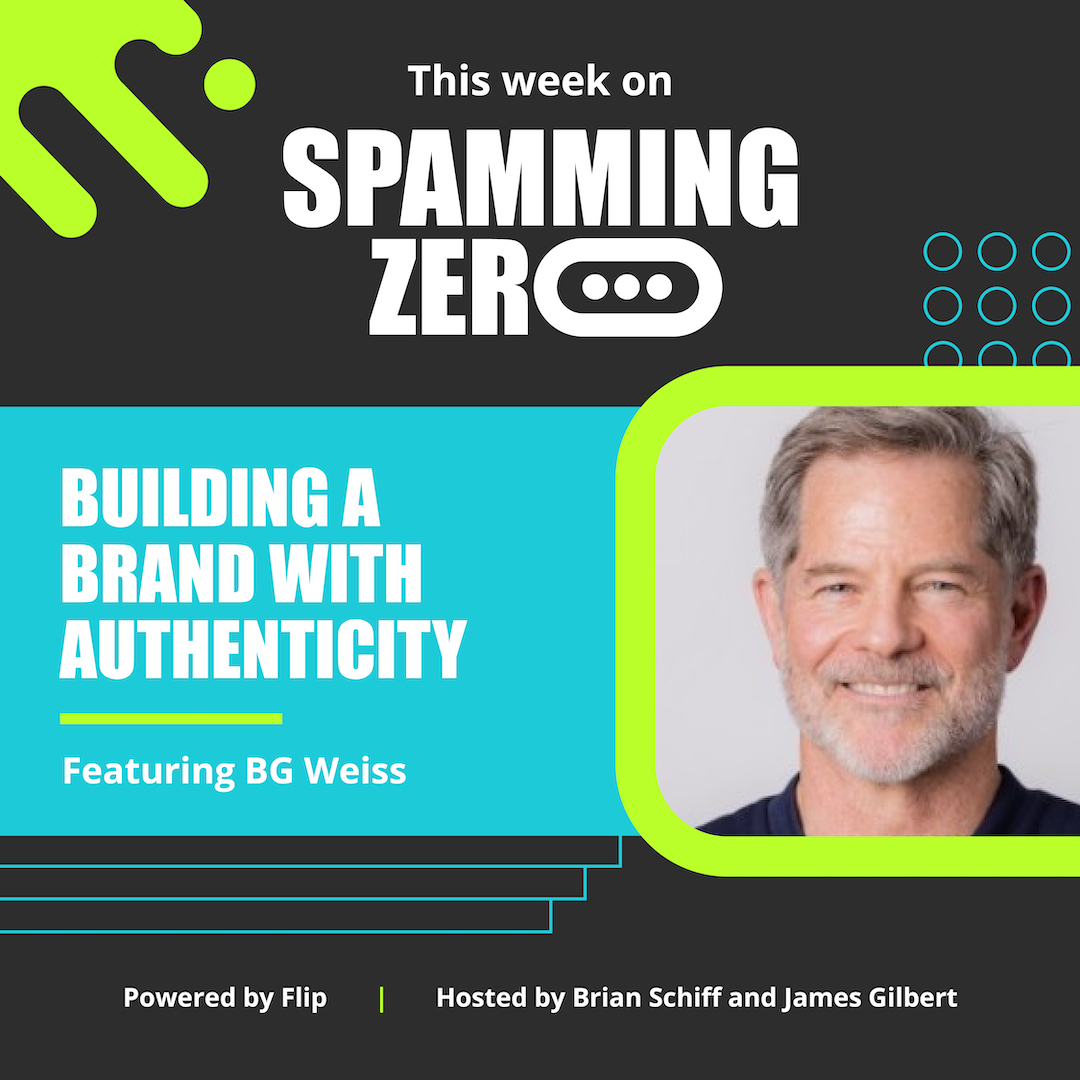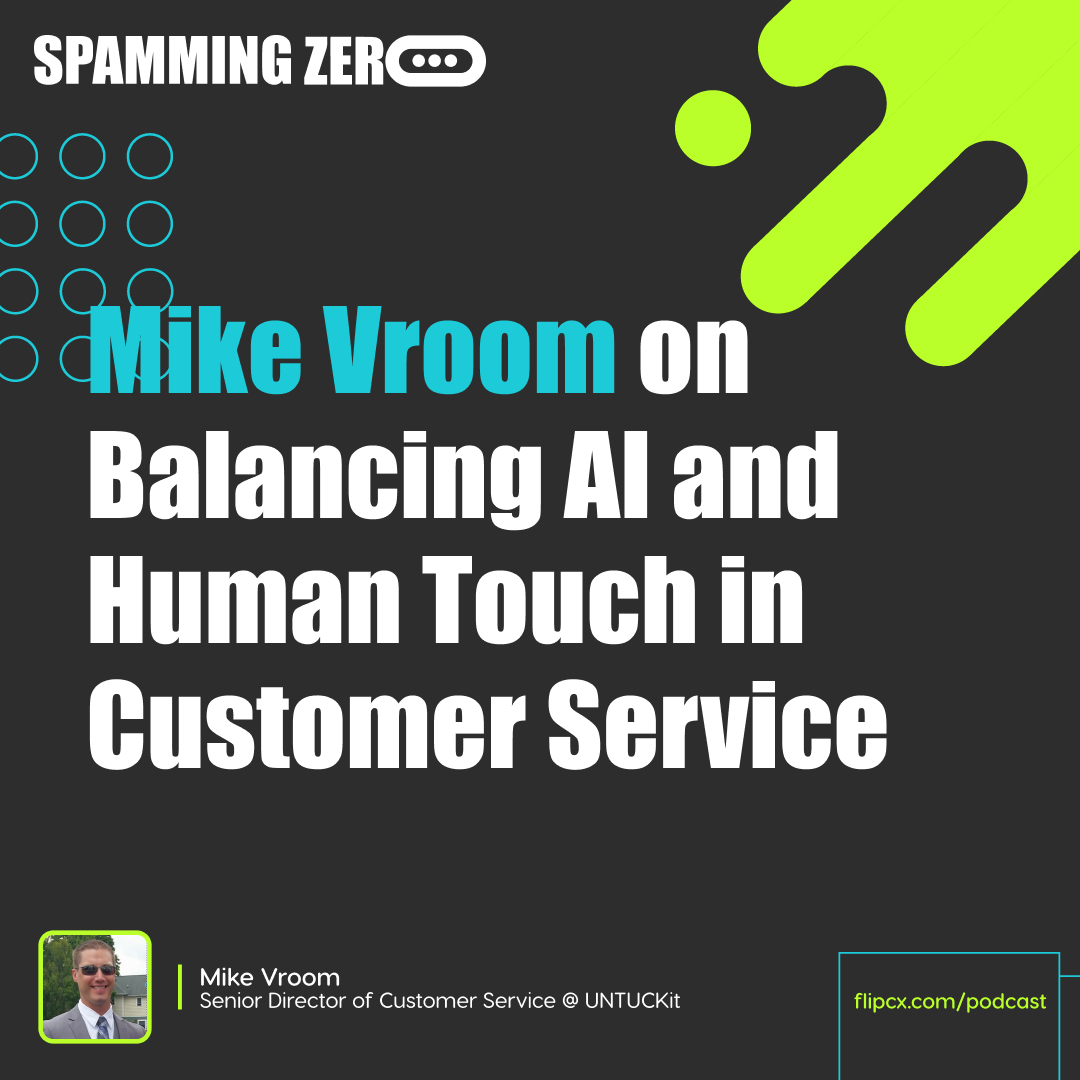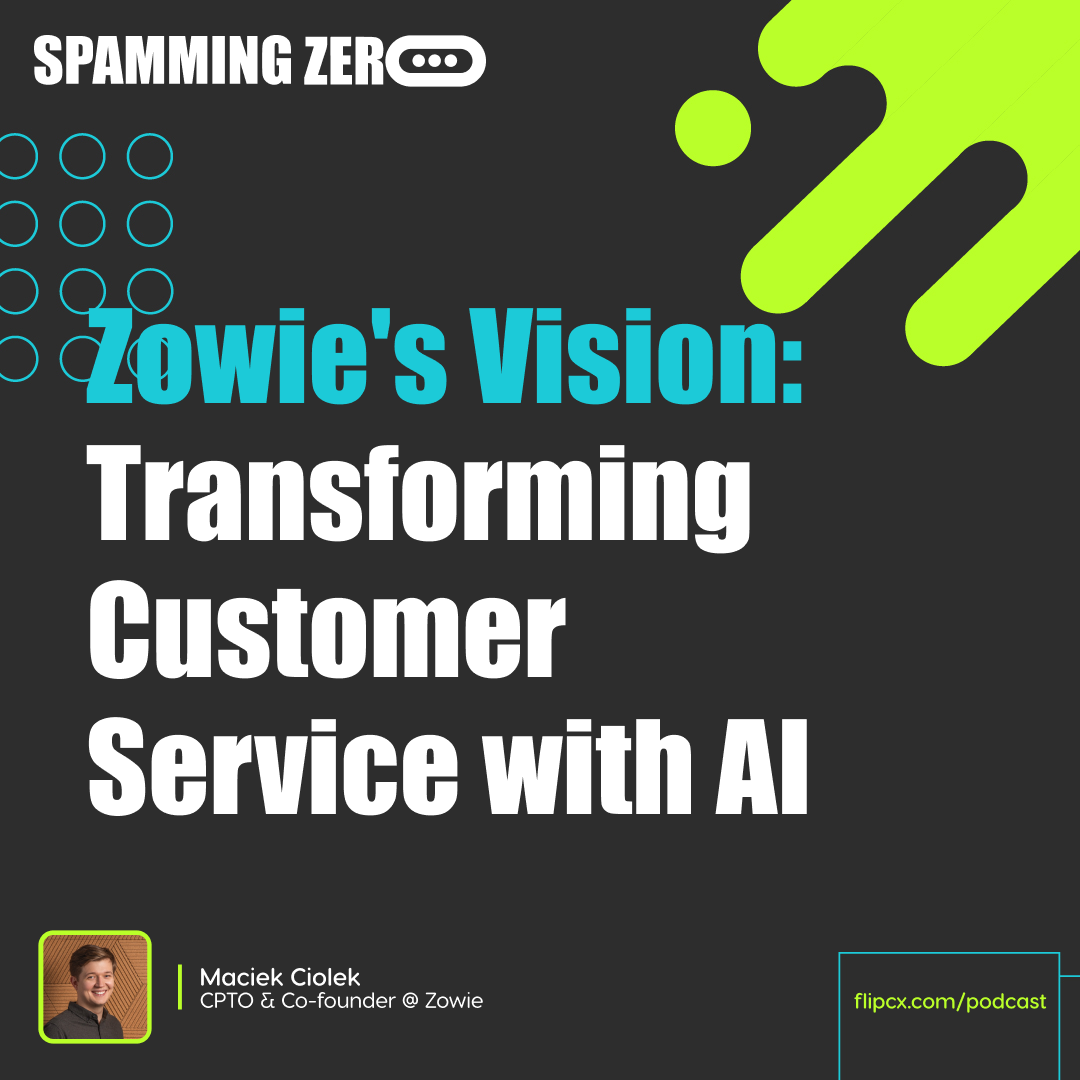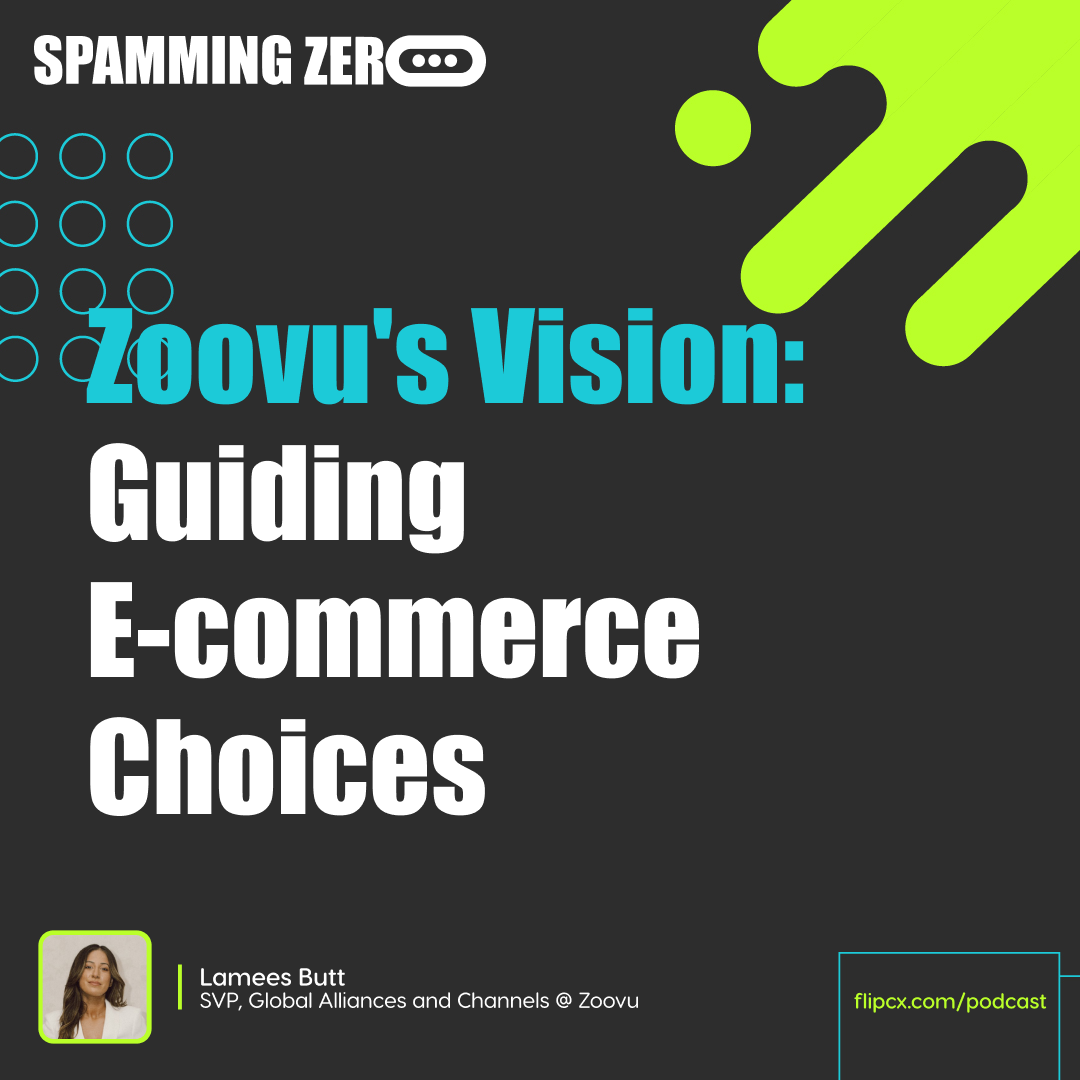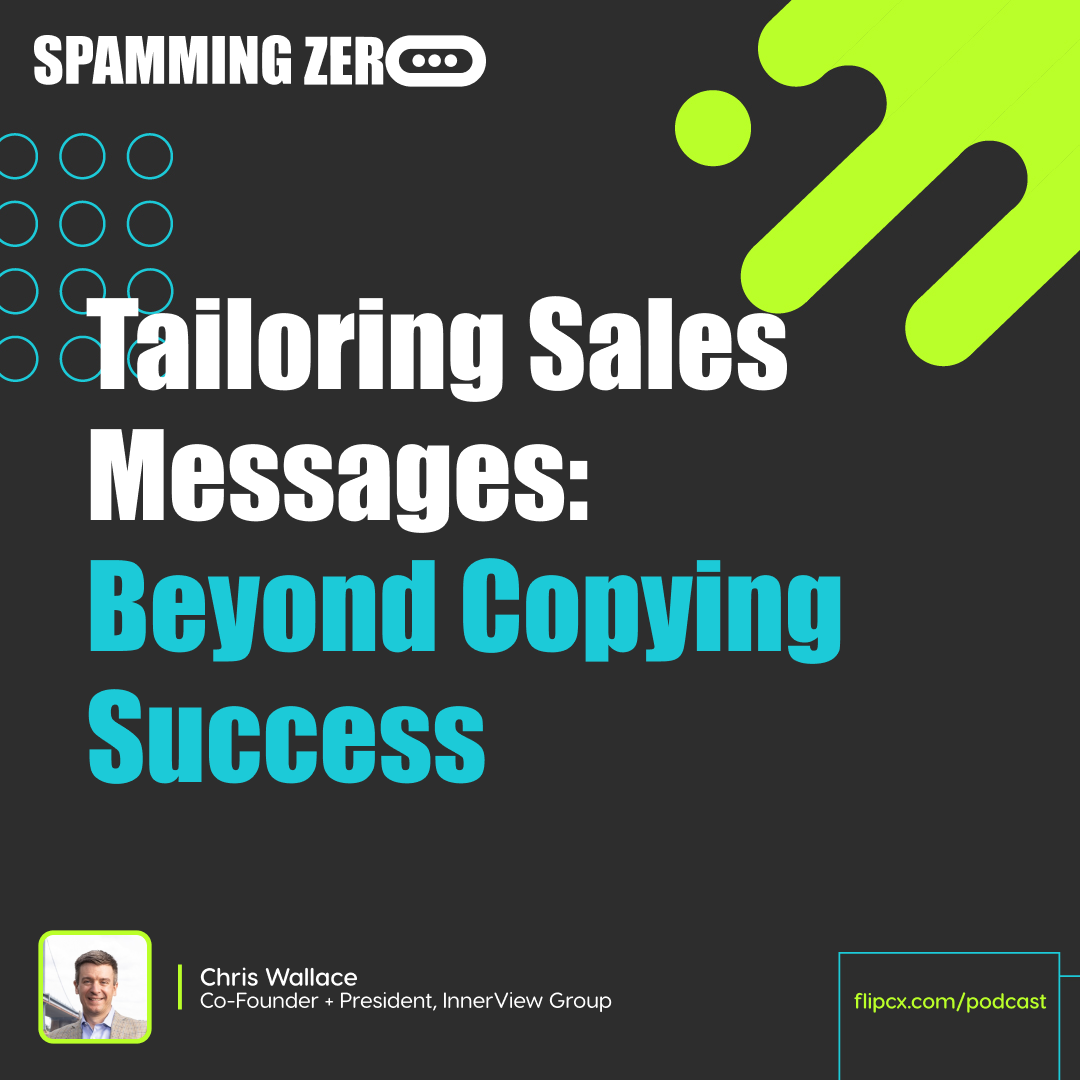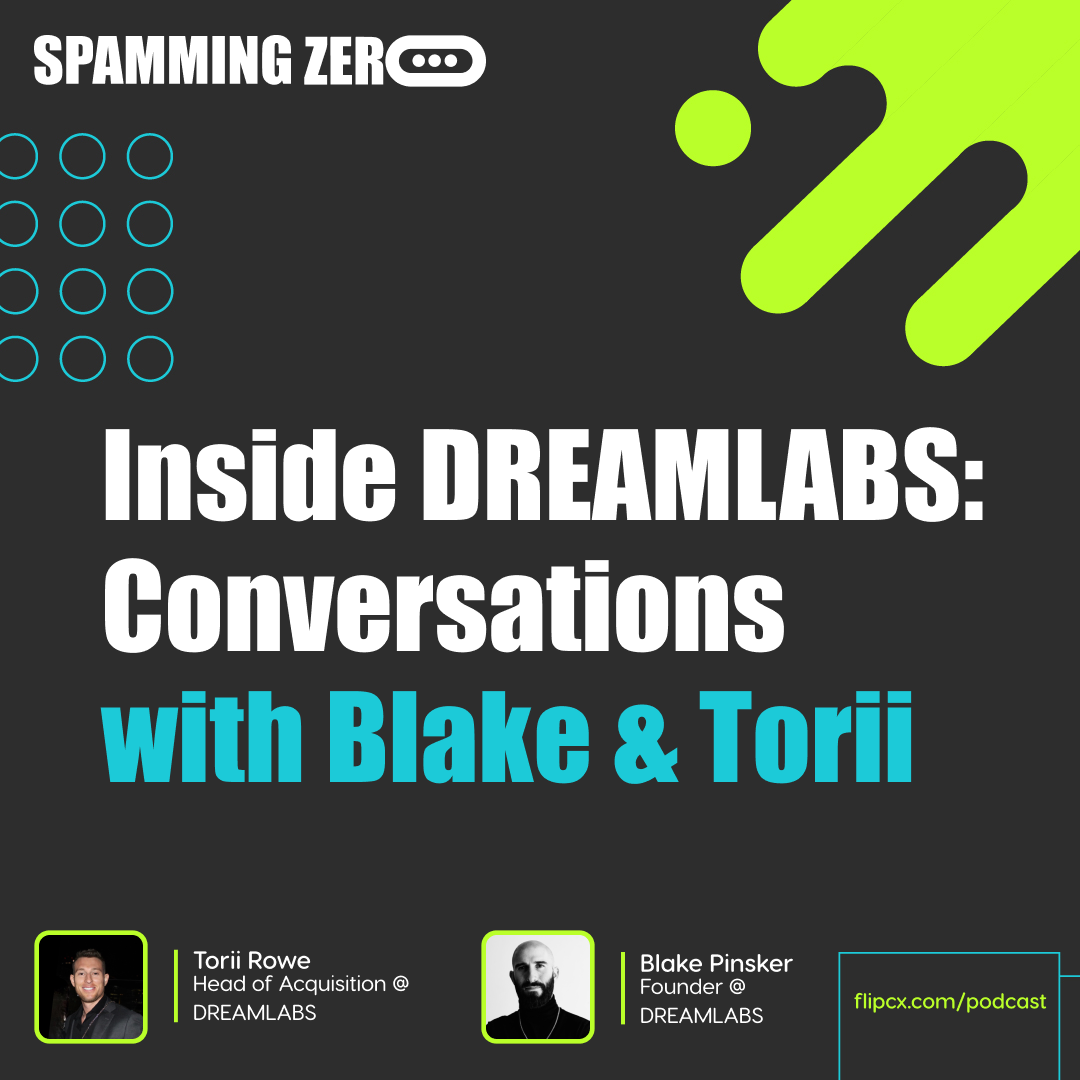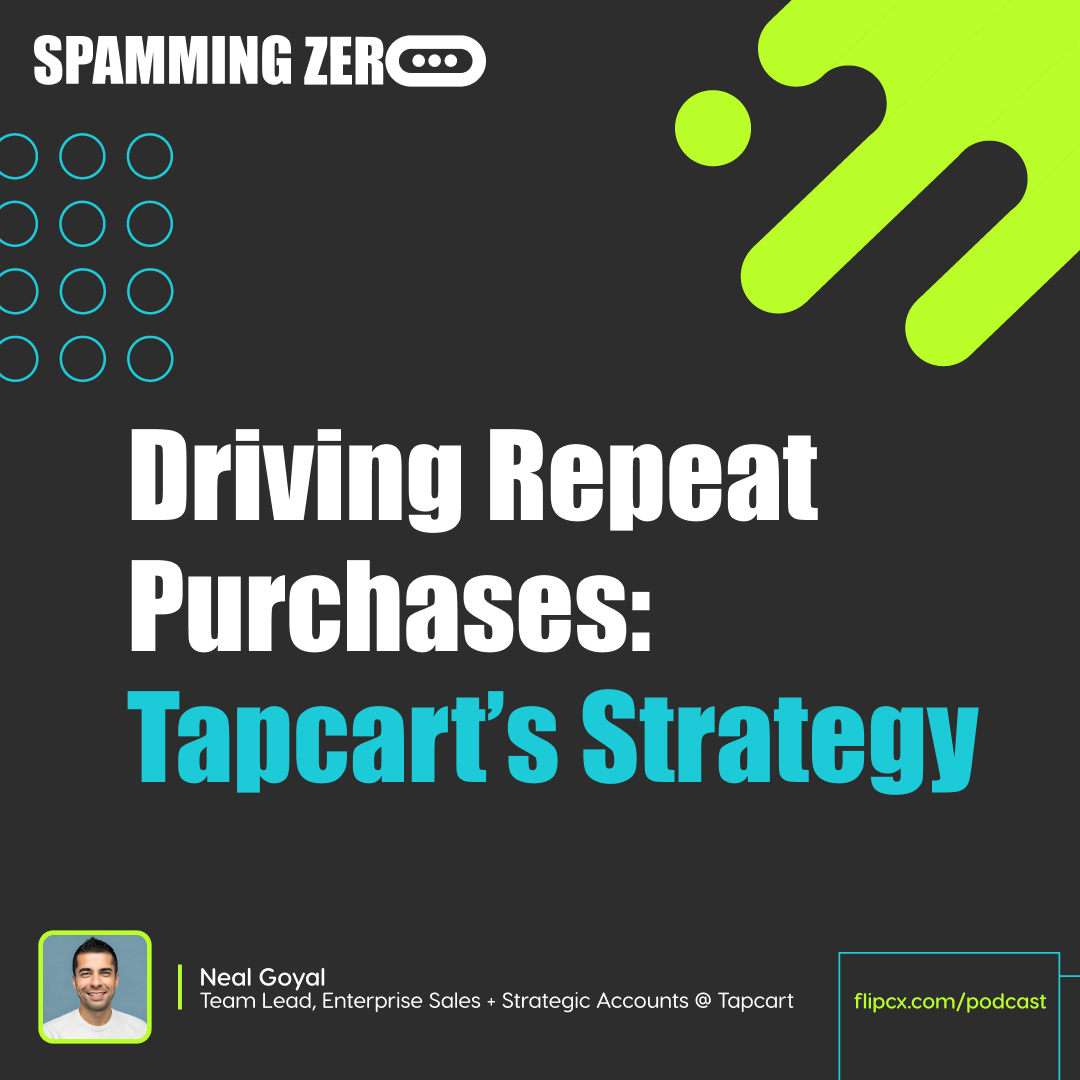Episode 26: Building A Brand With Authenticity
- 0.5
- 1
- 1.25
- 1.5
- 1.75
- 2
James: I'm James.
Brian: And I'm Brian.
James: And this is Spamming Zero. Hello, everybody. Welcome to another episode of Spamming Zero. It's been a little bit since Brian and I have had one of these. We've had so many that have been pre- recorded, and I'm excited today because we were going to be joined by the CRO of Thankful, BG Weiss. So BG, welcome to the show, and thank you for being such a gentleman. We just want to have real conversation with you. There's a lot going on right now in the marketplace, and you guys serve the same market that we do. Let's talk a little bit about that. One of the things that you and I had talked about early on was this idea of having a good mindset when it comes to having human conversations. I think it relates to the things that both of the companies that we work for are trying to do and establish right now. So what was your mindset when you were thinking about this topic?
BG Weiss: Well, okay, so the topic goes two directions, right? Because we can talk technology, and we can talk to CX space in general, or we can take a step back from that specific pointed discussion and talk about people and teams and customers. That's the human experience piece of it that I think is super interesting to me and that I do have a lot of passion about. So if you ask what comes up for me, I immediately think about some of the successes that Thankful is having. It's definitely in part because we do really cool things with our technology. Our AI is exceptional and it produces a really high quality output in our space. That's not deniable. But what is more meaningful is that we're successful in large part because our people and our culture are what they are. That goes to the whole question that you and I touched on a little bit, authenticity. That's where my passion goes. That's what I care the most about. And that really helps us land clients, and it helps us hire good people and all of that.
James: I remember early on during the pandemic, I had started a new CMO role at a company. And one of the things that I pitched to them right away in our sales process was the industry that we were going after, they probably care about their relationship more than most industries. It really matters. Early on, we talked about how important it was. Over the course of the year, we put a lot of effort into this authenticity in the sales cycle. Just every interaction that we had, we wanted to be helpful. Even if it was, dare I say, on a sales call where they were comparing us and a competitor and us saying they would be a better option. That's authenticity. It was so relevant that people in the industry would come to us just for that reason. So I think authenticity is massive when it comes to brands, when it comes to the experience that people have, because there's way too much noise. And quite frankly, all of our company's messaging, no matter how great of marketers that we have behind that, it still gets saturated because everybody's trying to articulate the value. And a lot of times the value is not very clear. So this is how you can differentiate yourself amongst a lot of big brands too if you're a smaller player, is beyond authenticity. Be authentic. Just do it, and then it results in itself the outcome that I think that most people want.
BG Weiss: Okay. Before we jumped on, and Brian, you were giving some input and giving me some background on the recent rebrand and all that. If you take the expectation of your team coming to the table, being who they are and opening up to the kinds of inside voice commentary that's going on, because it's going on, and sharing their thoughts, you're going to get stronger market positions than you would otherwise as a perfect example. Because someone's going to raise their hand, like you said, and say, " What the hell are we really doing here?" Because they're thinking it. Or they're going to say, " That sounds diluted or generic or ineffective." They're going to say what they think a lot more often if you invite that. Hopefully, you actually encourage it, right? So all along the way, the whole continuum of building a company, landing sales, creating quality long- term relationships, keeping the good strong people and attracting good people to your team, all of that stuff on a continuum does really well. You can go back to look at Steve Jobs and talk to folks that were in the trenches with him. Brilliant dude, big jerk. He managed it the way he did. Or you can flip that on its head and do it the other way, which is, " Dude, we brought you here because we want to know what you really think," or to whoever is contributing. And then it goes into the sales cycle, James. And it does. You sit there, and you call out an experience where someone... Actually, one of your sales people suggested that, "You know what? That's a better solution than ours." Hopefully, you can bring that back to your technology team and make it not true very often. But that's absolutely right. You end up getting people who want to stay with your team, who want to work with that kind of leadership, and who are more effective in what they do because you invite that sort of inside voice, honest, authentic experience everywhere they go. It takes work from, let's start with the leadership because they got to dig in. You have to pull it out of your people and let them know that they're, I hate that whole safe space term. That's not my thing. But it's like, " God damn it, what do you think? That's why you're here." That kind of thing really works in my experience.
Brian: So BG, tell me how you feel about this as a tactic. So James is in Utah and a handful of the other folks that joined him on the marketing team and I was out there for a week and we were doing a whole bunch of things recording the new video that's on our website, so on and so forth. And it was the Friday afternoon and we had one or two last things that we were going to do and I was struggling a little bit to get my energy level up and I told James he's got to help me out here. And the best way to do that was I wanted him to slap me in the face to get the energy going. So how does that stack up in terms of tactics and strategies to get your team to open up and feel comfortable?
BG Weiss: I think that is a fantastic ask. Did he do it?
James: I totally did.
Brian: Documented on video as well.
James: He asked me twice. So he asked me once and then I was like, " I don't know, Brian." And then he asked me again and then I did it. I didn't ask for a third time. It just happened.
BG Weiss: ...A little bit hilarious, James, if you didn't even let him finish the first ask before you rip it. Hey why not? Right? Whatever you need. You certainly needed something extreme.
Brian: The other thing that you kind of touched on. There's this interesting complex of we are both building products for CX teams and CX organizations and at the same time, we are responsible for crafting our own customer experience. And you talk about, you mentioned things like authenticity and building trust and establishing long- term relationships and those being guiding pillars that you take to building out your team, which are of course the same sort of pillars and metrics that our customers are, that is what they own and what they're responsible for. I almost feel that we have more of a duty and more of a responsibility to think about our own business and our touchpoints with the market, from a CX lens and really thinking about them as brand touchpoints. Just because we're living in this world every day. You got to practice what you preach versus somebody that, I don't know, a company that's out there that's doing something totally unrelated and different, they can kind of turn a blind eye to it. But we talk all the time building our sales process, creating marketing content, we talk about it through the lens of each conversation is a brand touchpoint. And all of those same kind of language.
BG Weiss: And you guys break it down, at least the way I experience Flip's brand, your professional corporate business personality is, and it's moving maybe more towards this, maybe this is part of your rebrand, you can tell me if that's not the case, but it sounds like it is. Kind of relates to authenticity because you seem to be stepping further away from more formal and crusty and you're embracing quick and young and nimble and hip and cool, that kind of stuff. It's coming across in your language, it comes across in your new name and the way you two have conversations with the world, like new people like me, we haven't hung out a lot. That's the brand that you're putting out there and that's absolutely who you are as human beings it seems like, from my experience. And so is that going to be attractive? Yeah, it's going to be really attractive, I think.
James: Well, we had four pillars of our brand essence. Every brand is created off of some sort of words that people want to be known for. And the four that we had, that we articulated as leadership team and we pushed through the organization and we talked to customers was unconventional, edgy, and fun. Those were the three. So I guess there wasn't really four, there was three. Well, actually there was, energetic was another one. So there was those four. Those four words, we wanted everything that we do in our brand to encompass that. So in our conversations it's how we can measure each other on if we're living on our brand, are you being unconventional enough? I can say that to Brian. He can say it to me all the time. In this podcast, are we asking questions that are thought provoking enough to help our guests be unconventional?
BG Weiss: The whole energy pushes the limits.
James: Yeah, exactly. And in today's world, every business is craving the attention of people. That's what they're doing. And you're competing with the biggest brands in the world, whether you think you are or not. Your paid advertising is competing with Coca- Cola if you're trying to go after people because it's the same space, it's the same area that you're trying to get attention with. And the best brands out there that do it incredibly well do something that most people are not doing. And most brands double down on a tactic or strategy and it all looks like the same noise. But ultimately, the customer experience that people have with your brand, it absolutely is part of the personality that your team brings to the table. I've been on sales calls and completely gotten out of a sales purchase that they're considered one of the best or whatever simply for the fact that I could not stand how their team treated me. It matters and I think it matters more than ever before because now you have community that's also articulating that people are connecting more and more one on one and networking more and one on one. So word of mouth gets out a lot quicker. If you have hiccups in these processes, they will get out and people will find out about them. And I think you got to really treat each touchpoint with care.
BG Weiss: You can't pretend or fake brand. You can't. You can fail at the brand that you think you're trying to be, but it's going to exist as who you are internally and then to the outside world and customers. Hopefully, it's the brand that you are shooting for. You know what I mean? And if it's completely in opposition to the kinds of leaders you are, like the human beings you are, then it's going to be a bunch of BS, frankly. If you guys want to be edgy and fun and that's what you're going to take to the market, that's also what you're going to be. My experience with you in this 20 minutes of a podcast, you seem like you could definitely be edgy, I imagine. You don't seem particularly filtered. I happen to love that. And I'm not having an un- fun time. You're still at work, but you know what I mean. So that I imagine that might work for you guys because you believe in it and it's you. That's one of the things I particularly love and have a passion for in brand because you got to do something that's really reflective of what you want to be. Because that's going to go outside of the four walls of Flip or Thankful and it's going to go out to your customers and it's going to resonate or not. Like you were saying James, you're like, " Get me the hell out of here," when you're talking whoever that third party was. It's going to resonate or not. And if you do it well and you've nailed the true personality that you guys bring into your business every day, awesome. You can go do great things. But if you pretend or you try to put some pretty PowerPoint together that says innovation like everyone, all this stupid stuff-
James: Digital transformation.
BG Weiss: Whatever. Let's talk about who are we, how are we going to treat people? What are our expectations? Do we work our tail off? Are we going to be good to our clients? Those kinds of things. Those are the words like edgy or fun that you can really perform on a regular basis without having to think about it too much. Then you got yourself a brand.
Brian: BG, how do you think about the relationship between brand and culture, right? Because we kind of drifted from one to the other. How would you describe that?
BG Weiss: They're the same thing. You might use different words. But culture within a company or a logo or whatever is truly how employees and team members read each other Monday through Friday, what their professional expectations are of each other, Monday through Sunday. That's culture, leadership. How is leadership doing the same things and it's most importantly setting the examples that you want. You know what I mean? Is your CEO... Ted, our CEO, dude's awesome. This guy was the lead marketing director for the Rolling Stones for 12 years and he traveled around with Mick Jagger and whatever. And he comes to work with a professional attitude every day with a work life balance that is really one of the healthiest I've ever experienced. Wears a T- shirt and he gets right to what matters, right? He's setting the tone for culture at Thankful. And is that our brand? It 100% is our brand. We do what we do very well and it's a huge priority. But we will not bullshit you and we don't care about looking like someone else thinks maybe that we should. And that comes from the top down and it permeates all of our team members' expectations. So I guess it relates very much to authenticity. He's who he is and that's invited throughout the company. And those two things about culture and brand, there's got to be a good intersection. If they don't, then you go back to I think you're faking it and you better put together good PowerPoints.
James: I absolutely agree with what you're saying, BG. I do think that they're a little different just from the standpoint of how you execute against it. I think culture is the brand that you have internally and the employee experience. I also think that culture can be represented externally through the brand that you position externally. But one thing that I think is oftentimes missed in culture is how every employee, this sounds disingenuine and it's not supposed to because it's just like how it is, but every employee is an extension of the brand. And if the culture isn't solid then the brand suffers externally. How you let go of employees, how you bring new employees on, all of that matters. Your Glassdoor reviews, all of it plays a role because I assure you more than ever, especially during the pandemic, people that were evaluating brands looked at culture as the highest thing before they looked at price, before they looked at value, before they looked at anything. This happened during the pandemic and really weaved into 2021. And I think it's still relevant today. Employees now look at culture as a very, very important measure to taking a job over compensation. So I think the initiative itself has intertwining components into brand. But ultimately, how we tackle it as an organization, its own little beast. And it doesn't quite, in my opinion, get the attention that I think it deserves.
Brian: There's no question that they're deeply intertwined and culture is obviously more internal looking versus brand, which is more the external mirroring of it. But I remember when we were in our courtship phase, I mean you hear James, I remember you and I talking about the idea of the term that we were using at the time was there needs to be a stylistic match. There needs to be a match between the style and the brand of the marketer and the style and the brand of what we are trying to become. And that is yes, on one end, the sorts of work and strategies and things that have been created or vision for things to create, but it was also interpersonally. And we've spoken about, showed up to the second interview and you were wearing your classic hat and a T- shirt and it was like, all right, we're getting somewhere.
BG Weiss: There's the reflection of who you are as a team of people and that has to be aligned with who you're trying to be publicly, what you want to emphasize publicly, what you think you can bring to people that might pay you for it. That is your public facing personality or brand. And Brian, I think you said, culture is the internal experience in many respects, it's the internal experience of the common values and priorities of your people because if those aren't shared, your culture's going to be missing some consistency and that will work itself out, one way or the other. And you will attract and get and grow team members with like values. Whether you want that or not, it's going to happen as you grow and get bigger. I guess I just completely agree with you.
James: Brian and I have talked a lot about this too, BG, about how a lot of companies, they use this sheet of paper or mission statement. And as a matter of fact, just a few weeks ago I had the wonderful opportunity of doing a keynote with a bunch of different folks for the women in revenue. And this was brought up on how culture can play a role in helping those that don't get as many opportunities to really play a role in something. And I found it interesting that the culture document and the mission statement, it was especially attacked. And I kind of agree with it because oftentimes, it just becomes a sheet of paper and people think culture's done once that's done. And I've talked to Brian quite a bit about this because we ourselves have been trying to think how we want to position our culture and how we want to establish it and flourish it. And just like our brand essence started with these four words and everything kind of tail ends from it. I think oftentimes, that document that people are trying to create should be the tail end of how everything is created. And I use something on my marketing teams that I serve, we have what's called guiding principles. And it's just a sheet and a document that helps us articulate the culture that we want to build. And one of them is that if we're going to adhere to our brand essence of being unconventional, then that means the stuff that we deliver in marketing has to be unconventional. And in order for that to happen, there needs to be guiding principles that allow us to help creativity and content and things like that flourish in an unconventional way. So two of our guiding principles have fun doing it or don't do it, period. Another guiding principle is always seeing things through the lens of the customer, the buyer, and the one who keeps the customer happy, which is the people that are at the company trying to keep the company happy. And by doing these two things, you can really play a lens and it becomes a guiding principle on how people are operating in their own little jobs and their own little functions of how they execute work. And I think guiding principles, a lot of the big financial books that you read out there have these guiding principles. The most pivotal part of our lives in most cases is our finances, it helps everything move and run and it's where people live or die with their life, then if there's guiding principles to that part of our life, there should be guiding principles to how we operate our teams and our businesses. And it's so fascinating to me how this idea of a mission statement and even a culture document has gotten lost in a piece of paper versus an actual principle that we're guided by.
BG Weiss: Yeah. Sometimes a mission statement can just be crazy making because... Well, it can because I've done several of them over the years that team really committed to and all of that. So I'm not pretending that, that's not the case. It is. But when you read through mission statements and you can tell that every other word was just debated and hashed out and was probably clearly... You know what I mean? It's just not really a natural place. That's the crazy making part because you should be able to get 70% there by just answering the question, " What the hell do we do? Why do we do it? What are we here for?" Answer the question. What do you really think? Maybe, the problem is, especially if it's in a young company, some of the answers are, " I don't F- ing know." Maybe that's a problem, right?
James: Yeah, yeah.
BG Weiss: ...Conversation about it so that what ends up on that piece of paper is something that everyone can get behind instead of like, " Oh, I guess. Hold on, what do they mean by that?" Really? So I struggle sometimes with that.
Brian: I also think that these things can evolve over time as the company evolves and as the product evolves and as the team evolves and as the leadership, as individuals evolves. Startups are known for things changing really fast. Why can't the culture and the values in the brand also change really fast?
BG Weiss: Amazon used to sell books.
James: Yeah. And think about it, Salesforce, think about how edgy they were in the very, very beginning of their early stages. They were a software company and basically said, " F software." And you wouldn't hear Salesforce be caught dead saying that. Now they're not as edgy as they used to be. But look at how their brand has developed.
BG Weiss: Night and day. If you're growing business and you're doing cool things and you want to push the limits, you got to re- ask that question and it's going to change or you're not looking around. You're not looking around if you're not trying to be nimble. You know what I mean? So yeah, I think that's part of the race.
Brian: So question for you, BG. You're just about six months in at Thankful. That's correct?
BG Weiss: Yep.
Brian: What are some big learnings that you've had both inside of Thankful, in the marketplace, as you've been getting acclimated? What have you been seeing? What have you been thinking?
BG Weiss: A couple of things. One of the reasons that I came over to Thankful was because the space was really heating up, AI for CX, it's becoming a pretty crazy area for investment. We've seen just in the last year, acquisitions probably half a dozen significant Series B or C investments. And then the biggest thing I think is investments on the help desk side that are potentially competition to Thankful, but they're really as much validation of the value of what we're doing. All of that is. And that has only scaled up since I started. And that's exciting. It's anxiety provoking, which it should be. That's all things I want. If I'm going to get up, you talk about you hope your people are having fun when they do what they do, you're going to have a heck of a lot better chance of doing what you do well if you're having fun, if you're enjoying it. For me, that journey has got to have this kind of energy and attention and opportunity. And AI in CX, in that space, is hot. So in those respects, I guess if you measure it that way, smarter people than us who want to, or smarter people than me, let me say it that way, who want to put their money somewhere where they think-
Brian: We can call it us.
BG Weiss: They're putting a ton of dough into our space. I love that. Consolidation, I love that. And when it comes to Zendesk, Salesforce, Zoom, larger businesses trying to expand into our space, that's just confirmation that we're in the right space. So that's the biggest thing. We're talking about that every day over here.
Brian: That's spot on. The whole idea of there's no category without competition and you want to be on that big wave that happens and it is a hell of a lot of fun. What about conversations with customers? Is there an insight or a moment or a person that has stood out as you've been kind of making your rounds? I'm sure in the customer base, what are the things that you've been hearing, maybe something that was different than you expected?
BG Weiss: So I look at three different revenue teams at Thankful, that go to my responsibility, existing customers, the CSM world, supporting implementations, that sort of thing. That's one. Net new sales is another and partnerships is the third. In all three of those categories, I ingest conversations with prospects or customers or potential partners. When you take a deep dive into potential ROI and real numbers and savings in what we do for our clients, for existing deals where it's real, we're measuring what we've done, we've had to dial back our ROI and savings numbers. Not with every client, but with just this week, several. And it's a regular experience and I'm not used to that, right? Because 550% ROI or whatever is not going to be believable up the chain. Okay, cool. So let's dial it back to 390%. Is that good? We're like here, here's the spreadsheet. Make it say anything you want. But we know what the numbers look like. Because if you can strip out 25 or 30% of the ticket queue and it cost them 350 or 450 per ticket, you do the math. It's like, it's awesome. So that's been a pleasant and new surprise.
James: We're in the thick of peak season right now. We both do automation. What is both of your aha moments when it comes to peak season and what brands need to be paying attention to that are maybe not thinking about automation and should, one, and number two, maybe thinking about automation but not sure how to implement it in such a short window?
BG Weiss: We look at the market in segments and if it's retail, okay, if we're looking at retail and we look at either enterprise or all the way down to SMB, just in terms of the size of our brands and logos, as you get closer to mid- market and definitely SMB, those guys are selling stuff, they're going to sell more, they're going to have spikes and peaks coming up. But they have less ability to scale for support, or less experience with it or access to it than some of the larger logos, larger brands, because they may have a smaller relationship with a BPO or whoever, or maybe their own internal support team. And scaling human beings is hard. And it's definitely hard if you have to, the smaller you are, proportionally, the more scale you need. You might need to triple your head count, something like that. So from where we sit when we walk into this quarter, we try to help our customers or our prospects lower the pain to scale and to scale quickly in a way that is simple and easy and less of a headache. Software, technology, what you guys do, those are tools that are the easier solution because it doesn't require a bunch of people.
Brian: The biggest thing that you hear around this time is there's a lot of perceived risk in adopting this sort of technology at such a critical point. This is the, quote, unquote, Super Bowl, right? They're doing half of their sale, half of their business for the year is happening in this time period. And I think there's this huge perceived risk that is associated with adopting this sort of solution. And it really doesn't need to be that way. It depends on the business that you're in and the technology that your business runs on the back end and what sort of vendors you're looking at. But it doesn't need to be a large lift. There are almost always opportunities to start small. And I always ask people, what is the alternative? So are you saying that you're worried about the risk of turning on a couple of use cases for a small percentage of your volume and seeing what the data looks like and the potential risk associated with that time investment and that exposure to your customers? Versus, the status quo that is going to happen, which is you're going to have massive backlogs, you're going to have wait times, you're going to have agents that are burned out in the holiday season when, God forbid, they get to spend some time with their families. And you're going to have all of these customers that are experiencing your brand for the first time, first time shoppers. What is that experience that you're going to be giving them? So I think that there's a perceived risk, and no doubt, a lot of that is tied to what you were saying of this being a newer thing in the market. And I do think that automation is starting to reach that tipping point where it's not like sorcery and sci- fi anymore and there's enough real world success stories. So it's starting to reach that tipping point. But I still think that there's that perceived risk which gives decision paralysis to people when it doesn't necessarily need to be there. And then the other thing is for companies like yourself and us, we have access to all of this data going historically on what are the trends that exist in the conversations that are going on across businesses, across verticals, through this time period. So seeing things like, what does the actual curve look like of call volume? And maybe an industry norm curve would be a better predictor this year with everything going on at a macro level than whatever your kind of single company data that is just operating in a different world than it was 12 months ago. And then also, being able to see things like the topics of these conversations and the sentiment of the customers on these conversations. How does that change in this period? And seeing things like, okay, you can almost match the months on the calendar to the stages of the buying journey for an e- commerce customer through this time period where it's a lot of product questions and new order related things are happening, in the early part of the holiday season. And then when you get in the lead up towards Christmas and the end of year holidays, there's like everything about when is my package going to arrive, and that sort of customer fear that's going on. And then you get into the new year and everything is about like, " Oh shit, this thing's broken, this thing never showed up, I want to do an exchange, I want to return it, I want my money back," whatever it is. And you see all of those sort of topics start to come in. And I think that also plays into the mitigating risk and starting small and understanding what those kind of hot button issues are going to be, and then being efficient with your time to get the ideal results today. And not being like, " Hey, why would you wait a year when this is your Super Bowl and the moment when there are all of these new customers that are going to be experiencing the brand for the first time?"
BG Weiss: Because it's not free, Brian. It's not free.
James: inaudible.
Brian: Go ahead. Go ahead. Take it away.
James: I just was going to say that's a great place to end this show. BG, was a pleasure to have you on. Thank you for coming on the show today.
DESCRIPTION
Authenticity. It’s the secret sauce that helps brands succeed and stick around. Don’t believe me? Need more clarity on exactly what it means to build your brand authentically? Done!
BG Weiss, CRO at Thankful, is an expert on this very topic. He brings real talk around the power of authenticity and a positive mindset when it comes to your brand. This week, on Flip’s Spamming Zero Podcast.
What’s Covered?
- The power of honest interactions
- How to encourage real talk from your team
- Authentic EX --> Authentic CX
- The relationship between brand and culture
- Making your mission statement more than words on a page
- BG’s take on the industry – then, now, and next
- Real talk around quick implementation of automation
- A winning mindset for Peak Season
- And more
Ready for more fantastic Spamming Zero conversations ahead? Listen, rate, and subscribe on Casted, Apple Podcast, or Google podcasts.
Today's Host
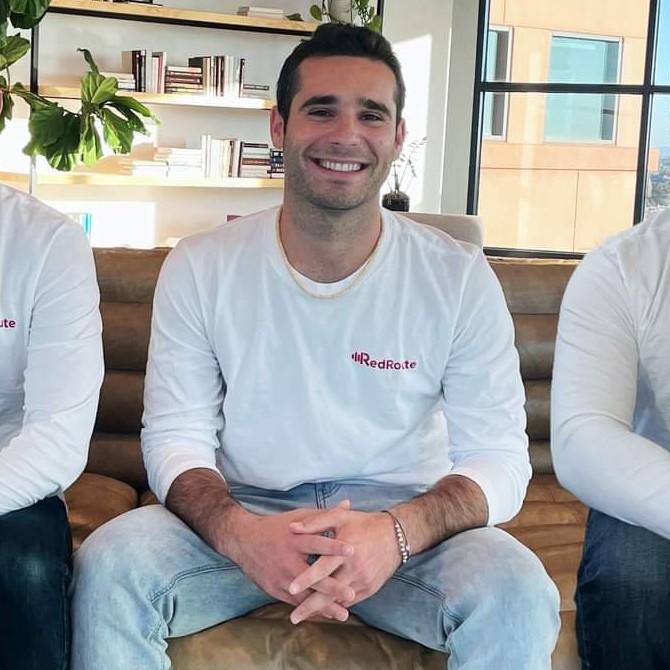
Brian Schiff
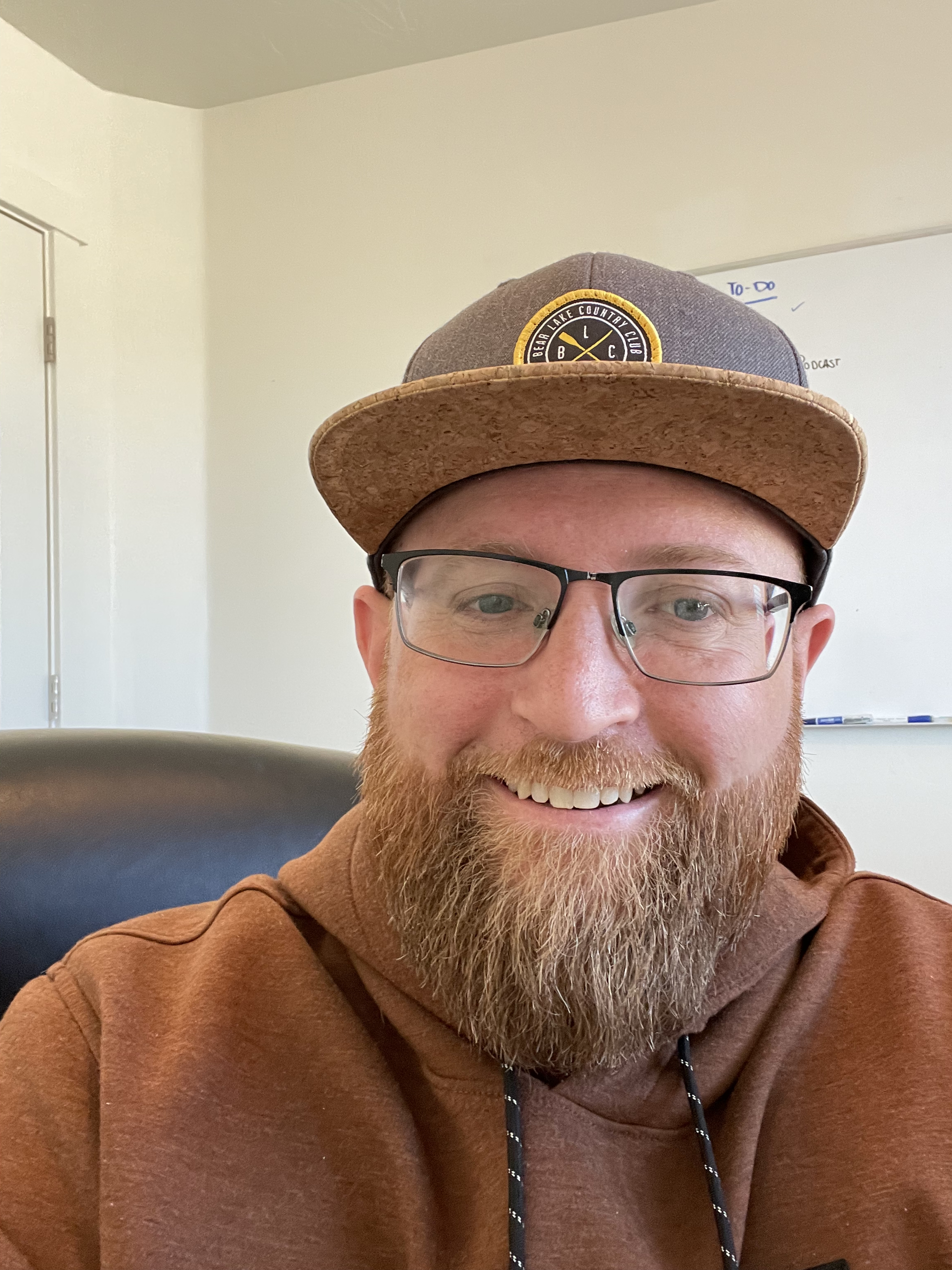
James Gilbert
Today's Guests
